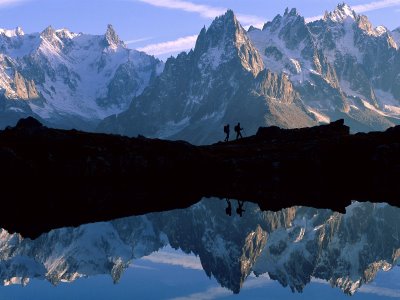 British mountaineer David Sharp, 34, died of apparent oxygen deficiency while descending from the summit of Mount Everest during a solo climb last week. As he lay dying, he was passed by more than 40 climbers, almost all of whom continued on to the peak without offering assistance, leaving him to die during their own attempts to summit.
British mountaineer David Sharp, 34, died of apparent oxygen deficiency while descending from the summit of Mount Everest during a solo climb last week. As he lay dying, he was passed by more than 40 climbers, almost all of whom continued on to the peak without offering assistance, leaving him to die during their own attempts to summit.Several parties reported seeing Sharp in varying states of health and working on his oxygen equipment on the day of his death.
Mark Inglis, who became the first double amputee to reach the mountain's summit on prosthetic legs, told Television New Zealand that his party stopped during its May 15 summit push and found Sharp close to death. A member of the party tried to give him oxygen, and sent out a radio distress call before continuing to the summit, he said.
Inglis said Sharp had no oxygen when he was found. He said there was virtually no hope that Sharp could have been carried to safety from his position about 1,000 feet short of the 29,035-foot summit, inside the low-oxygen "death zone" of the mountain straddling the Nepal-China border. His own party was able to render only limited assistance and had to put the safety of its own members first, Inglis said.
"I walked past David but only because there were far more experienced and effective people than myself to help him," he said. "It was a phenomenally extreme environment; it was an incredibly cold day." The temperature was reportedly -100 at 7 a.m. on the summit.
In 1953, Hillary and Sherpa Tenzing Norgay became the first to reach Everest's summit. Hillary said that some climbers today did not care about the welfare of others. "There have been a number of occasions when people have been neglected and left to die and I don't regard this as a correct philosophy," Hillary was quoted as saying in an interview with New Zealand Press Association. "Human life is far more important than just getting to the top of a mountain."
"I think the whole attitude toward climbing Mount Everest has become rather horrifying. The people just want to get to the top."
Hillary said he would have abandoned his own pioneering climb to save another's life. "It was wrong if there was a man suffering altitude problems and was huddled under a rock, just to lift your hat, say 'good morning' and pass on by," he said. He said that his expedition, "would never for a moment have left one of the members or a group of members just lie there and die while they plugged on towards the summit."

No comments:
Post a Comment